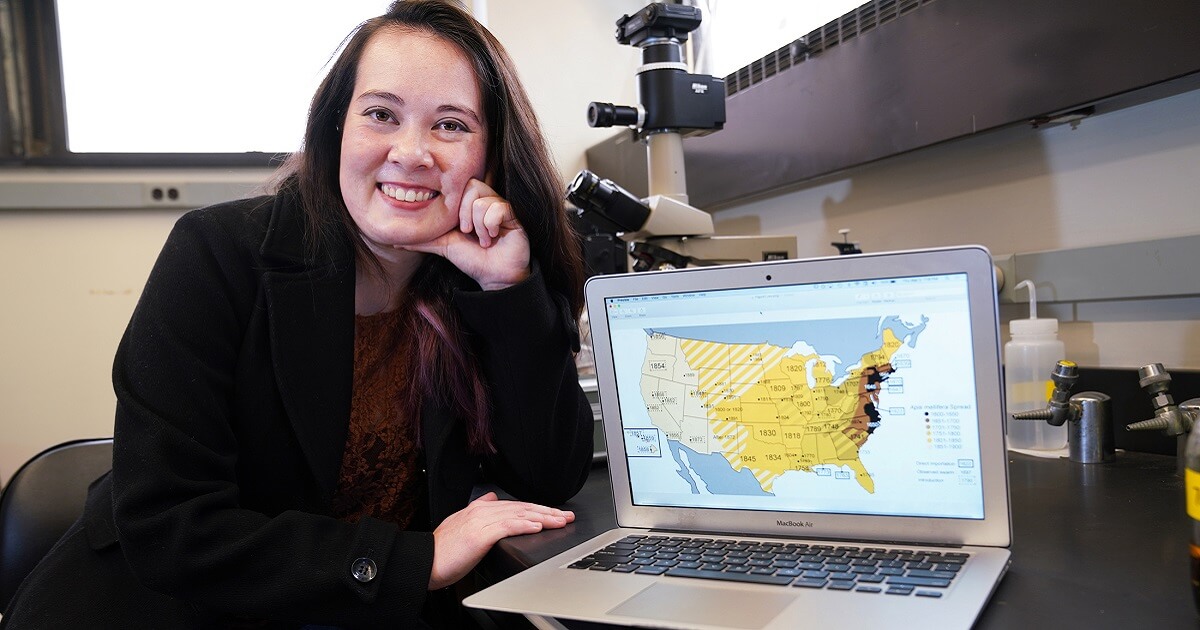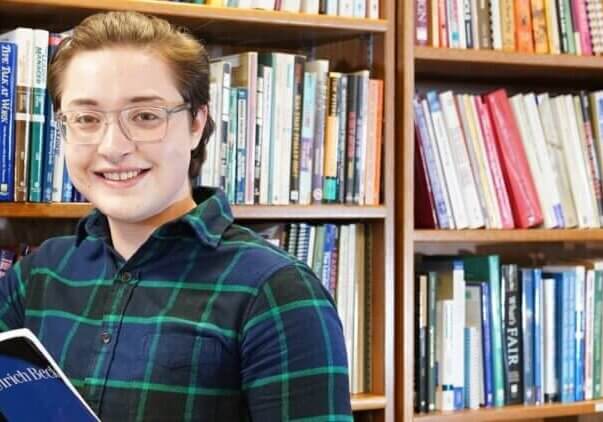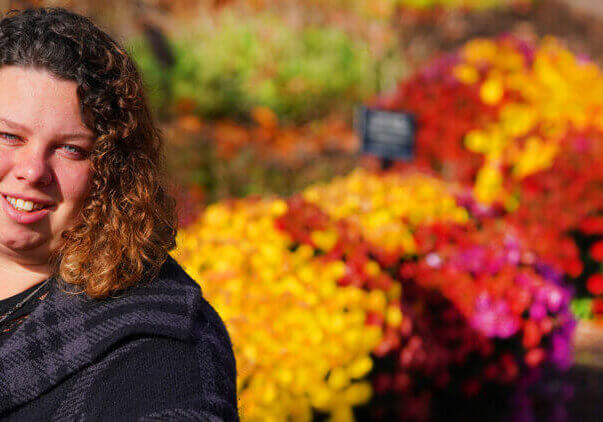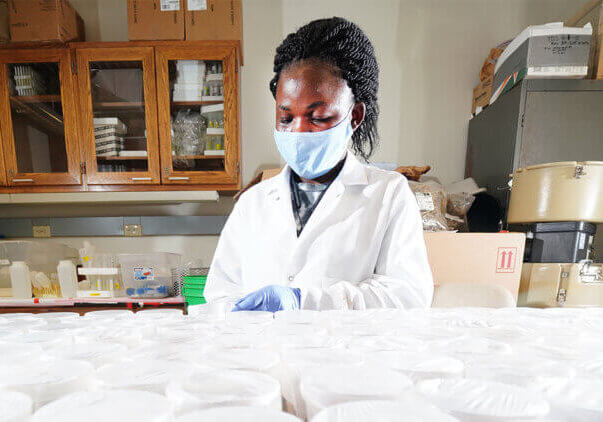"F
or the most part honey bees rely on humans to survive. We have been breeding them for many hundreds of years to express the traits we want, like honey production, resistance to disease and gentleness.”
— Maddie Carpenter, MS student, Department of Entomology

The Student
Maddie Carpenter was working toward a degree in international affairs at Northeastern University before changing to biology. “In reality,” Carpenter says about the switch, “some of my friends’ classes sounded much cooler than the courses I was taking!” Shortly thereafter, the native of Albany, New York, signed on for a six-month urban beekeeping internship in the Boston area. The experience proved a turning point: “I fell in love with the job and working with honey bees, especially the caretaking part of it.” After completing the internship, Carpenter continued to read scientific articles related to honey bees while exploring graduate programs in beekeeping. The head of Purdue’s beekeeping lab, Professor Emeritus Greg Hunt, had just retired from the entomology department, but Carpenter delved into papers written by his successor, Brock Harpur, assistant professor of entomology. The two spoke over Zoom about the parasite resistance work Harpur intended to start in his new lab. “My approach before was from a beekeeper perspective,” Carpenter says. “The way Dr. Harpur was going about it — a proactive approach using genome sequencing to take out the traits to prevent parasite infection — was fascinating to me.” Carpenter joined Harpur’s lab and began master’s study in fall 2019.
The Research
Skills from Carpenter’s earlier studies in international affairs and its focus on history proved unexpectedly useful in entomological research. A U.S. map on Carpenter’s laptop illustrates the first of two projects. Bees are not native to the United States; Carpenter tracked their import from Europe, Asia and Africa and their movement around this country. “The map documents the initial spread of the Western honey bee across the United States,” she explains. “I was the first person to construct a map of this kind from eyewitness accounts, newspapers, and honey bee journals spanning 400 years.” It laid the groundwork for a second phase of research — analyzing the entire genome of the honey bee — 263 million base pairs — for parasite resistance using its from a wider geographic range than in previous research — groundbreaking work that Carpenter hopes will help beekeepers and honey bee researchers in the future.
Opportunities
Carpenter’s thorough review of the archival and available genetic history of honey bees in the U.S. over the last 400 years was published in January 2021 and presented at several major conferences in the field. Attending beekeeper meetings balances the research with outreach that spans hobbyist beekeepers with a hive or two in their yards to large commercial beekeeping operations. Carpenter credits Harpur with encouraging such opportunities as well as “anytime I run into a hurdle, nudging me in the direction of fixing it.”
Future plans
Carpenter will likely complete the MS this spring and is considering a career that would allow for ongoing working with genome sequencing. “I enjoy the very complex puzzle, and it’s a growing field that holds my interest.” Outside of the lab, Carpenter enjoys recreational hiking in the area — a throwback to a childhood often spent outdoors fishing, hiking and “observing the natural world.”
Graduate Student Spotlight: Rob Weiner
“Even if it’s a hard conversation, it’s good to gain perspective on where other people are coming from and why they have the beliefs they do. It can be emotionally draining, but it’s also very worthwhile.”
— Rob Weiner, PhD student, Department of Agricultural Sciences Education and Communication
Read Full Story >>>Student’s research examines influences on decision making in natural resource management
“What I love about my work is I get to interact with people from all different lifestyles, livelihoods and cultures,” said Brooke McWherter, a Ph.D. candidate in forestry and natural resources. “As much as I produce knowledge, I’m learning much more.”
Read Full Story >>>Student’s research looks for answers at Purdue to questions raised at home in Nigeria
Adebukola Dada grew up on a Nigerian farm where her father raised various plants and animals. “If our crops did not do well, I asked my dad to tell me why,” Dada recalled. “That’s up to you to figure out,” her father replied. Now a Ph.D. student in agronomy, Dada is on her way to finding the answers.
Read Full Story >>>Graduate Student Spotlight: Rob Weiner
“Even if it’s a hard conversation, it’s good to gain perspective on where other people are coming from and why they have the beliefs they do. It can be emotionally draining, but it’s also very worthwhile.”
— Rob Weiner, PhD student, Department of Agricultural Sciences Education and Communication
Read Full Story >>>Student’s research examines influences on decision making in natural resource management
“What I love about my work is I get to interact with people from all different lifestyles, livelihoods and cultures,” said Brooke McWherter, a Ph.D. candidate in forestry and natural resources. “As much as I produce knowledge, I’m learning much more.”
Read Full Story >>>Student’s research looks for answers at Purdue to questions raised at home in Nigeria
Adebukola Dada grew up on a Nigerian farm where her father raised various plants and animals. “If our crops did not do well, I asked my dad to tell me why,” Dada recalled. “That’s up to you to figure out,” her father replied. Now a Ph.D. student in agronomy, Dada is on her way to finding the answers.
Read Full Story >>>

